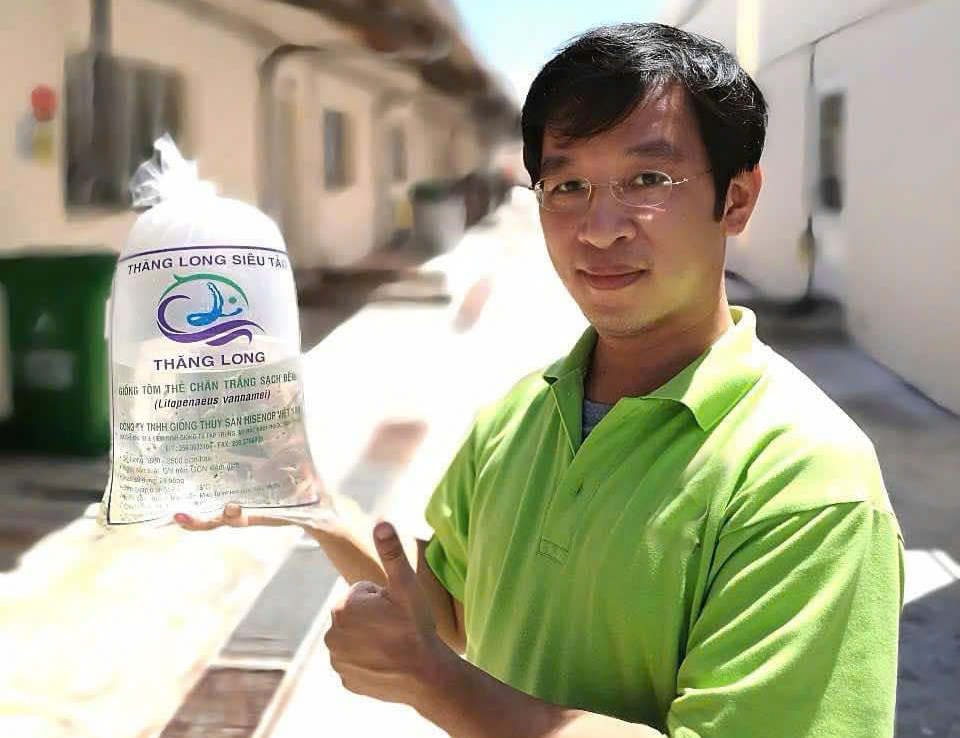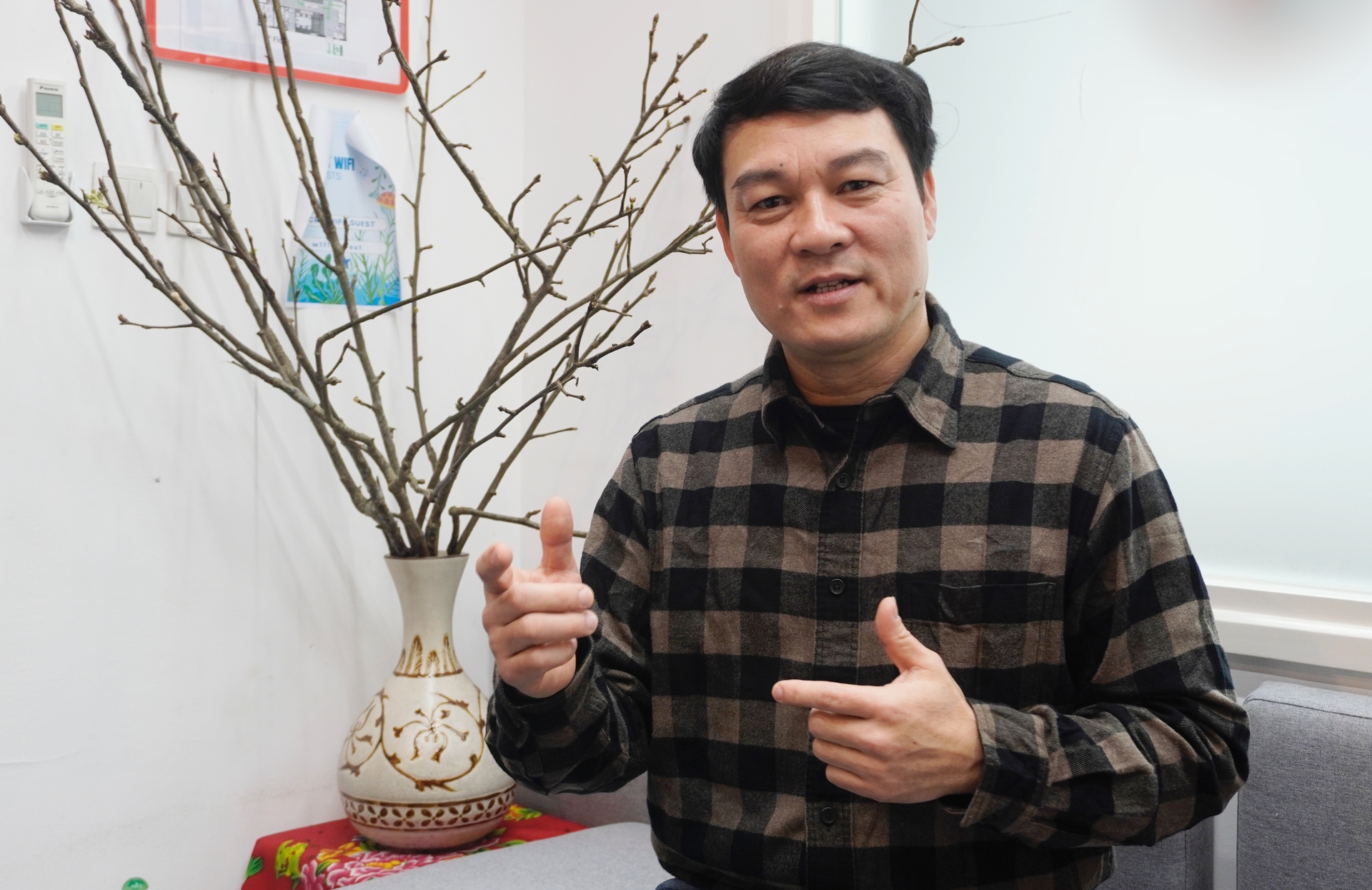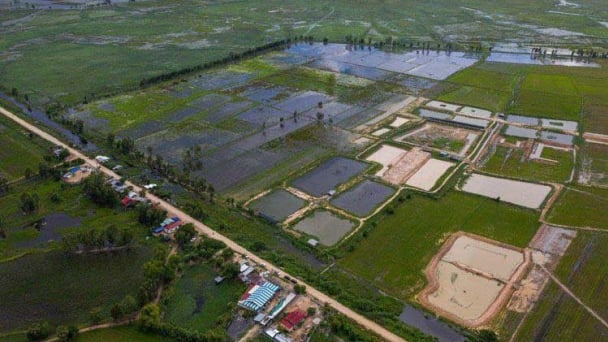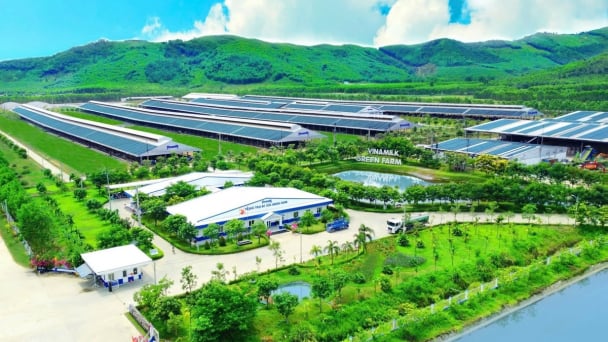May 16, 2025 | 09:50 GMT +7
May 16, 2025 | 09:50 GMT +7
Hotline: 0913.378.918
May 16, 2025 | 09:50 GMT +7
Hotline: 0913.378.918
According to Mr. David Danson (pictured), CEO of the Shrimp Business Unit at Hendrix Genetics, a global corporation specializing in animal genetics and breeding, Vietnam stands as one of the top shrimp-producing nations worldwide. However, it continues to face challenges in achieving self-sufficiency in broodstock shrimp stocks.
To address this issue, there is a significant need for investment in long-term breeding programs. Developing high-quality, disease-free broodstock requires a sustainable genetic selection process, strict biosecurity measures, and ongoing investment in research and development.
Moreover, strengthening biosecurity regulations is critical to preventing disease outbreaks within the shrimp farming industry. It is imperative to ensure that domestic breeding programs comply with stringent disease-free (SPF) standards and biosecurity protocols. This will reduce the risk of disease transmission.
Simultaneously, Vietnam should also focus on increasing international cooperation with specialized organizations worldwide. Collaboration with leading genetics companies, such as Kona Bay has done in Indonesia and India, could play a pivotal role in helping Vietnam access cutting-edge breeding technologies.

In addition, there should be a focus on sustainable breeding practices. Choosing specific traits such as disease resistance, optimal growth rates, feed conversion efficiency, and the ability to endure harsh environmental conditions is crucial for the long-term sustainability of the shrimp farming industry.
Furthermore, strengthening domestic production capacity is a critical factor in reducing Vietnam’s reliance on imported broodstock shrimp. Investment in hatchery infrastructure, research centers, and comprehensive training programs is vital to developing a self-sufficient and skilled workforce.
Finally, enhancing domestic production capacity is crucial. Investing in hatchery infrastructure, research centers, and training programs will gradually reduce dependency on imported parent shrimp stocks.
Achieving complete self-sufficiency will undoubtedly take time, as the transition from reliance on imports to a fully developed domestic breeding program is complex. However, a balanced approach — combining domestic breeding with the import of high-quality, disease-free (SPF) broodstock shrimp — will yield the best results for the Vietnamese shrimp industry.
Mr. Ace Chua (pictured), Sales and Marketing Director of Shrimp Improvement Systems (SIS), believes that while Vietnam is one of the largest shrimp producers in the world, the country still heavily relies on imported broodstock shrimp stocks. In order to achieve self-sufficiency, Vietnam can take several steps, including:
Firstly, investing in domestic breeding programs. Developing the capacity to produce high-quality parent shrimp locally requires significant investment in infrastructure, technology, and specialized training.

Secondly, collaborate with global experts. Partnering with international companies such as SIS will provide access to advanced technologies, expertise, and practical experience.
Thirdly, government support is crucial. The development of policies, legal procedures, and funding mechanisms will be necessary to promote research, infrastructure development, and training in the fields of genetics and shrimp farming.
Fourthly, focus on sustainability. Prioritizing sustainable practices is essential to ensure the long-term development of the shrimp farming industry while minimizing environmental impacts.
SIS is committed to supporting Vietnam in this journey. Through collaboration, we can help Vietnam reduce its reliance on imported broodstock shrimp and build a sustainable, profitable shrimp farming industry that will thrive in the long term.
According to Mr. Ming Hsien Chen (pictured), Deputy General Director of Thang Long Biotechnology Co., Ltd. – Ninh Thuan Branch, achieving self-sufficiency in the production of domestic parent shrimp is a project that will take a significant amount of time, at least 10 to 15 years. This can be accomplished through the following strategies:
Firstly, enhancing research and technological innovation. Investing in gene selection technology and disease-resistant breeding will improve technical capabilities. The application of molecular biology and genetic selection technologies is essential to developing high-quality parent shrimp breeds that are well-suited to Vietnam’s specific environmental conditions.

Secondly, develop a modern broodstock shrimp farming system. Establishing gene banks and broodstock shrimp breeding centers with high biosecurity standards is essential to ensure the stable supply of high-quality broodstock.
Thirdly, supportive policies are needed. Tax incentives and financial support policies should be implemented to encourage businesses to invest in broodstock production. Strict quality standards should be established, along with enhanced control measures to ensure the quality of broodstock.
Fourthly, specialized workforce training is crucial. Training professional engineers in genetic selection techniques and disease control will help improve the overall efficiency and quality of shrimp farming operations.
Lastly, expand international cooperation. Joining the global aquaculture value chain and collaborating with international organizations to transfer advanced technologies and management models will be key.
Mr. Ngo Tien Chuong (pictured), Project Manager at the German International Cooperation Agency (GIZ), believes that over the past decade, shrimp hatcheries in Vietnam have still heavily relied on imported parent shrimp. The main reason for this is the low level of investment in innovation and high technology, which has led many businesses to opt for importing moderate quantities of parent shrimp to ensure profitability and quick return on investment. Meanwhile, small enterprises face significant challenges due to financial limitations, making technological investment difficult to achieve.

Therefore, to promote the development of domestic parent shrimp production, the first step is to change the mindset and focus on long-term investment rather than short-term gains. The development of science, technology, and innovation in this field requires a long time to recoup investments, and as such, businesses need to have sufficient financial "health" to maintain sustainable operations.
To achieve this, one of the key solutions is to focus on quality, not quantity, in terms of shrimp hatchery businesses. The government should implement policies to screen and eliminate small businesses that do not meet financial and technological requirements, while encouraging businesses with sufficient resources to invest in high technology. This will allow them to breed parent shrimp domestically in Vietnam, ensuring a reliable and self-sufficient supply of breeding stock.
Therefore, the government needs to support businesses by creating favorable mechanisms for capital, taxes, and science and technology policies that will enable businesses to thrive. Investment in national breeding research centers, along with collaboration with international genetic organizations, is also a crucial solution to accelerate the development of domestic parent shrimp production.
If decisive measures are not taken soon, Vietnam risks losing its competitive advantage and gradually falling behind in the race with other top shrimp-producing nations worldwide.
Translated by Phuong Linh

(VAN) Vietnam’s TH Group officially put its high-tech fresh milk processing plant into operation in the Russian Federation, marking a historic moment as the first TH true MILK cartons were produced in Russia.

(VAN) Use of high-quality broodstock and biotechnology is regarded as the most effective approach to ensuring sustainable and economically viable shrimp aquaculture ahead of climate change and the emergence of increasingly intricate disease patterns.

(VAN) Carbon farming is a form of agricultural practices that helps absorb more greenhouse gases than it emits, through smart management of soil, crops, and livestock.

(VAN) This is a key content of the Memorandum of Understanding recently signed between the Vietnam Fisheries Society and Kunihiro Inc of Japan.

(VAN) To achieve the goal, local authorities and businesses in Kon Tum province have fully prepared the necessary conditions for the new Ngoc Linh ginseng planting season.

(VAN) Jiangsu province is gearing up to host training programs in Phnom Penh, the capital of Cambodia, this year to establish the Fish and Rice Corridor.

(VAN) Le Hoang Minh, representing Vinamilk, shared the company's experience in energy saving and green energy transition for production at a workshop held during the P4G Summit.